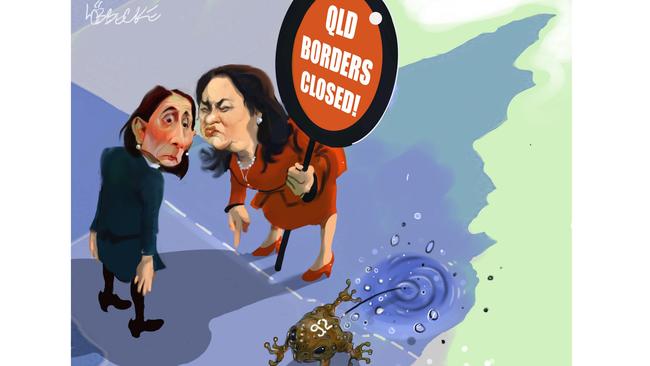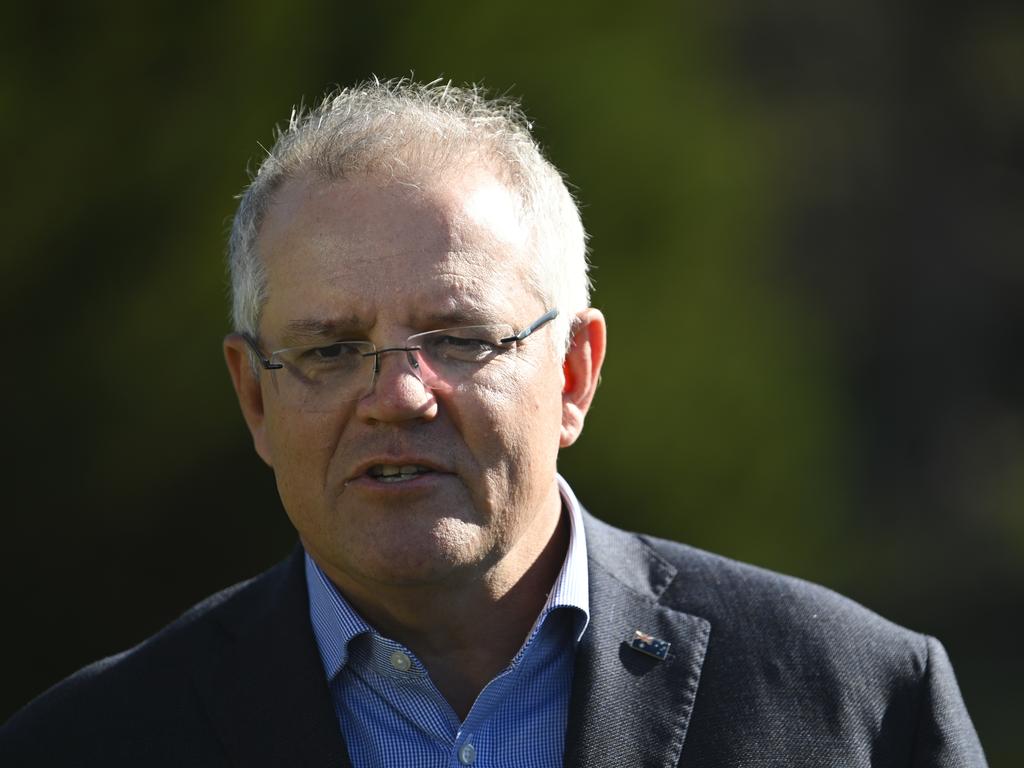Coronavirus: Queensland may be on a constitutional borderline

It might be thought that these emphatic words do not permit the closing of a state border, but is it so straightforward? Like other parts of the Constitution, the text of section 92 does not always mean what it says. In this case, the difficulties of interpretation are enormous.
The spare words of section 92 have caused grief for generations of lawyers. Some have been driven to hyperbole, with one commentator describing the section as giving rise to “gothic horrors and theological complexities”.
Former chief justice Sir John Latham spent much of his 16 years on the High Court grappling with the text with limited success. When he retired from the court in 1952, he remarked: “When I die, section 92 will be found written on my heart.”
The difficulty with section 92 is that it cannot be read literally. Trade and movement between the states can never be “absolutely free”. Necessity dictates some restrictions.
Dangerous goods and illegal drugs need to be banned, state and federal taxes need to be paid to support government and communities need to be protected from injury. If this were not the case, section 92 would dictate that violent pornography and apples infected with fruit fly could be sent between states without restriction.
The High Court has spilt more ink on making sense of section 92 than any other clause in the Constitution. After 140 inconclusive cases, the court finally settled on an approach in 1988 in the famous case of Cole v Whitfield. The judges spoke with one voice in setting aside earlier attempts. They held that section 92 is breached when a law discriminates against interstate trade and commerce to protect local industries, such as a Tasmanian law imposing additional taxes on mainland goods or a South Australian law requiring consumers to buy locally made products.
This provides a line of attack for businesses affected by border closures. An interstate tourism operator may be discriminated against when people are prevented from travelling interstate. Border closures also favour local tourism operators over interstate competitors. Queenslanders, for example, can only purchase holidays within their state, and so NSW and other operators are unable to compete for their business.
A second line of attack stems from the protection in section 92 of interstate “intercourse”. This recognises a personal freedom, in the words of the High Court, “to pass to and fro among the states without burden, hindrance or restriction”.
It ensures that people can cross state borders to visit a family member or indeed for any other reason they wish.
But the entitlement of businesses and citizens to cross state borders under section 92 is not absolute. The High Court has recognised that trade, commerce and personal movement can be still stopped at the border to solve a pressing social problem. This might be to protect the environment, prevent the spread of a noxious pest such as cane toads or to quarantine an area to prevent infection.
These exceptions must be pursued in a way that is a reasonable and appropriate means of addressing the problem. The law cannot go beyond what is reasonably required.
State border closures were likely valid as an exception to section 92 at the height of Australia’s response to the coronavirus. They can be seen as a proportionate response to the severity of the threat facing the nation, and the need to prevent travel and movement. It is equally clear that the closures cannot be maintained when they are no longer reasonably needed to protect state communities. As the threat of infection through internal travel wanes, the need for border closures will diminish until they become unconstitutional.
It may not be long before border closures are invalid, if indeed this point has not already been reached.
The Constitution makes free trade and free movement within Australia an imperative that at some point will be reasserted. The timing depends on the medical evidence, which remains contested. Federal Deputy Chief Medical Officer Paul Kelly has said there is no medical reason for Australians to be stopped from travelling interstate, while Queensland’s Chief Health Officer, Jeannette Young, has backed closures to protect Queenslanders from interstate infection.
The only way to resolve this uncertainty is for border closures to be tested in the High Court. It would not be surprising to see a challenge filed by a tourism operator, a disgruntled individual, or a state such as NSW that has roundly criticised others for not opening up. Time will tell whether the debate moves beyond a slanging match between premiers into the nation’s highest court.
George Williams is dean of law at the University of New South Wales.







The heated debate over the closure of state borders raises significant questions about Australia’s Constitution. When our nation was created in 1901 it was with an unequivocal commitment to free movement and free trade throughout the federation. This is expressed in section 92 of the Constitution, which states that “trade, commerce, and intercourse among the states … shall be absolutely free”.